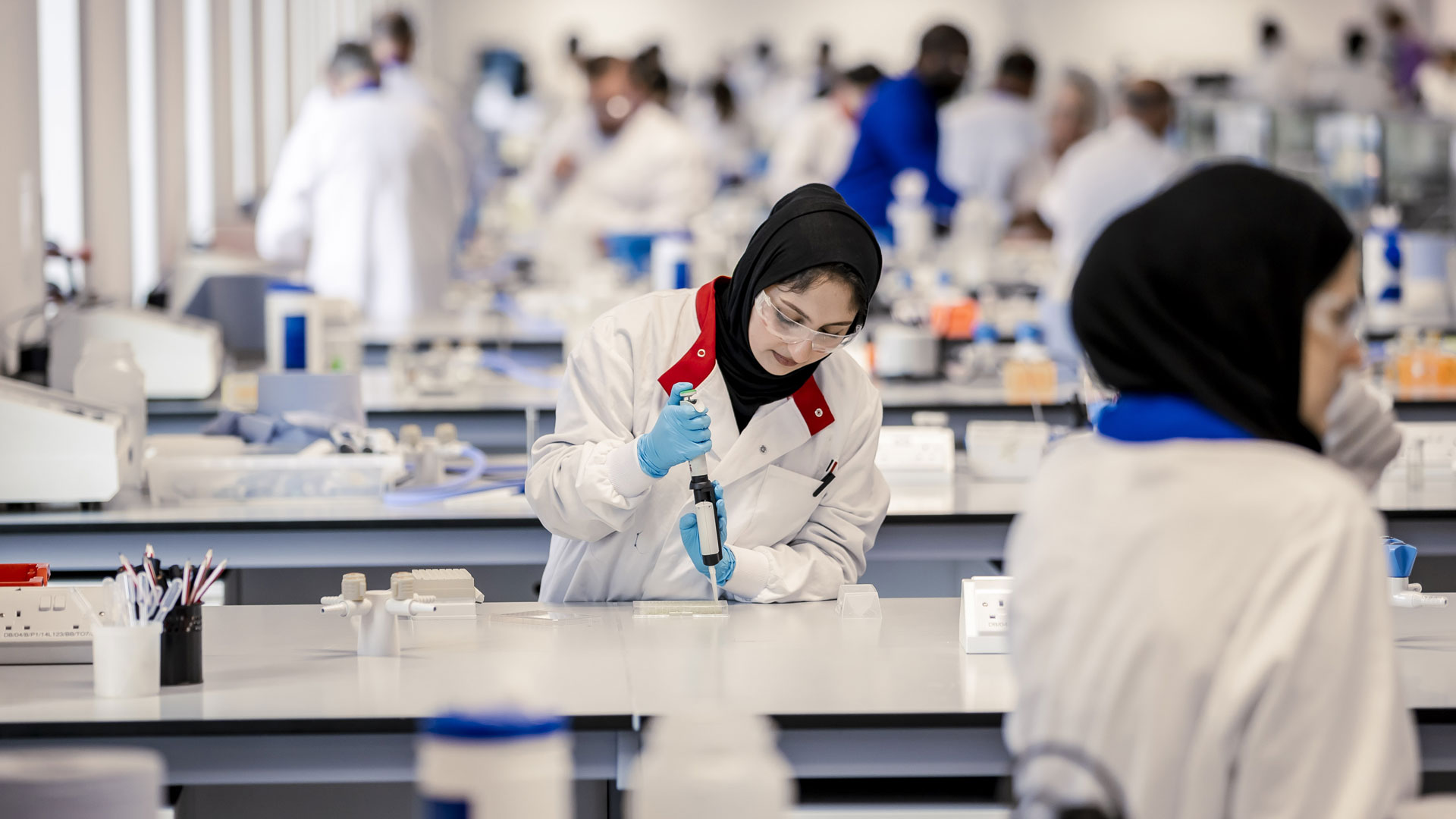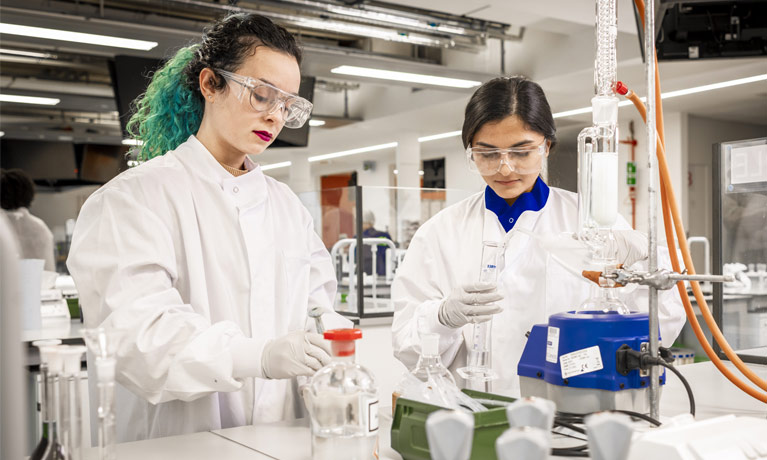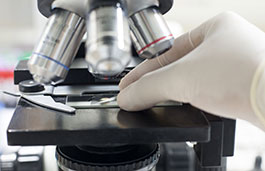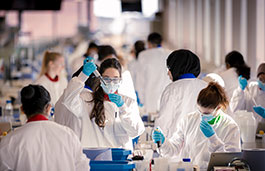Search
Global Pharmaceutical and Biotech Management MSc
Study level: Postgraduate
Develop the skills needed to tackle scientific, regulatory, and business challenges in the therapeutic sector, while developing leadership and strategy expertise for a career in global pharma and biotechnology.
Course features
Year of entry
Location
Coventry University (Coventry)
Study mode
Full-time
With Professional Placement
Duration
1 year full-time
Up to 2 years full-time with professional placement
Course code
EEST046
Start date
March 2026
May 2026
July 2026
Course overview
Key course content:
- Contemporary innovation and discovery: understand what drives innovation and how ideas are transformed into successful, marketable products within the sector.
- Leadership and commercial expertise: develop leadership skills in the context of and examine global market dynamics, product commercialisation, and economic and resource management.
- Professional development: undertake business case studies and earn a CMI Level 7 Certificate on successful completion of the Leadership Management for Life Sciences module, creating a personalised leadership portfolio.
5 QS Stars for Teaching and Facilities
QS Stars University RatingsVoted 1st in West Midlands for Postgraduate
Whatuni Student Choice Awards 2025Ranked 4th for Overall Satisfaction in PTES
Postgraduate Taught Experience Survey (PTES) 2025Why you should study this course
- Industry-relevant curriculum: focuses on understanding global pharmaceutical and biotech industries, addressing topics such as market access, regulation and health economics, helping you prepare for roles in these fields.
- Global perspective: gain insights from international guest speakers and explore global trends, challenges and opportunities shaping the pharmaceutical and biotech industries.2
- Professional experience: combine scientific knowledge and business skills to develop a business case, work in teams and create a professional portfolio to launch your career.
- Career-focused outcomes: prepare for leadership and management roles within healthcare, pharmaceutical companies and biotech industries. The course supports skill development for positions in policymaking bodies and global health organisations, such as the WHO.
- Gain practical experience: boost your CV with an additional professional placement. See the modules for more details.2
Accreditation and professional recognition

Chartered Management Institute
The module Leadership and Management for Life Sciences meets the criteria set by the Chartered Management Institute (CMI) for the CMI Level 7 Certificate in Strategic Management and Leadership Practice. Students who successfully pass this module will be eligible to gain the award as an additional qualification at no additional cost.
What you'll study
We regularly review our course content, to make it relevant and current for the benefit of our students. For these reasons, course modules may be updated.
How you'll learn
Teaching and learning methods may include:
- lectures
- seminars
- tutorials
- presentations
- group projects
- workshops.
Teaching contact hours
As a full-time postgraduate student, you will study modules totalling 180 credits each academic year. A typical 30-credit module requires a total of 300 hours of study. Study hours are made up of teaching contact hours, and guided and independent study.
Teaching hours
Teaching hours may vary, depending on where you are in your studies, but on average you will have between 8 and 12 teaching and learning hours each week. You will also have the opportunity to attend optional sessions including time with a Success Coach or to meet with staff for advice and feedback.
Guided and independent study
Throughout your studies, you will be expected to spend time in guided and independent study to make up the required study hours per module. You will be digging deeper into topics, reviewing what you’ve learnt and completing assignments. This can be completed around your personal commitments. As you progress to the end of your studies, you’ll spend more time on independent learning.
Online learning
As an innovative university, we use different teaching methods, including online tools and emerging technologies. So, some of your teaching hours and assessments may be delivered online.
Assessment
This course will be assessed using a variety of methods which could vary depending on the module. Assessment methods may include:
- online tests
- coursework
- presentations
- reports
- portfolios
- projects
- group work
- individual assignments.
The Coventry University assessment strategy aims to ensure that our courses are fairly assessed and allows us to monitor student progression towards achieving the intended learning outcomes.
The pharmaceutical and biotech industries are part of a globally relevant and pioneering area for which there is an ever-growing need for candidates suitable for employment. These areas include not only the development of new products, in response to global medical issues, but also in the increasingly vital application of a business management and marketing mindset. Within our Global Pharmaceutical and Biotech Management MSc we endeavour to provide a transformative multi-discipline suite of courses encompassing the application of the knowledge of leadership and business management within pharmaceutical and biotech sectors, in both national and international markets.
Steven Foster, Associate Head of School for Quality and Accreditation, School of Life Sciences, 2023

Entry requirements
Typical entry requirements:
Fees and funding
| Student | Full-time | Part-time |
|---|---|---|
| UK, Ireland*, Channel Islands or Isle of Man | £11,200 £1,500 professional placement fee (if placement secured) |
Not available |
| EU | £11,200 per year with EU Support Bursary** £1,500 professional placement fee (if placement secured) per year with EU Support Bursary** £18,600 per year without EU Support Bursary** £1,800 professional placement fee (if placement secured) per year without EU Support Bursary** |
Not available |
| International | £18,600 £1,800 professional placement fee (if placement secured) |
Not available |
For advice and guidance on tuition fees3 and student loans visit our Postgraduate Finance page and see the university's Tuition Fee and Refund Terms and Conditions.
We offer a range of International scholarships to students all over the world. For more information, visit our International Scholarships page.
Tuition fees cover the cost of your teaching, assessments, facilities and support services. There may be additional costs not covered by this fee such as accommodation and living costs, recommended reading books, stationery, printing and re-assessments should you need them.
The following are additional costs not included in the tuition fees:
- Any optional overseas field trips or visits: £400+ per trip.
- Any costs associated with securing, attending or completing a placement (whether in the UK or abroad).
*Irish student fees
The rights of Irish residents to study in the UK are preserved under the Common Travel Area arrangement. If you are an Irish student and meet the residency criteria, you can study in England, pay the same level of tuition fees as English students and utilise the Tuition Fee Loan.
**EU Support Bursary
Following the UK's exit from the European Union, we are offering financial support to all eligible EU students who wish to study an undergraduate or a postgraduate degree with us full-time. This bursary will be used to offset the cost of your tuition fees to bring them in line with that of UK students. Students studying a degree with a foundation year with us are not eligible for the bursary.
Facilities

Lanchester Library
The library is usually open 364 days a year. It’s where you can access your course’s specialist Academic Liaison Librarian. It’s also home to specialist teams which can support you with your academic writing and maths and statistics questions.

The Hub
The Hub is the centre of student life on campus. Facilities include a food court, convenience store, multi-faith centre, medical centre, hairdresser, coffee shops and the Your SU offices. It has fully licensed function spaces and a bar.

Careers and employability
Get one-on-one guidance lasting up to 18 months from the end of your course. We’ll help you find placements and graduate roles, offer CV and application checks, mentoring, skills workshops, employer events and more.
Facilities are subject to availability. Access to some facilities (including some teaching and learning spaces) may vary from those advertised and/or may have reduced availability or restrictions where the university is following public authority guidance, decisions or orders.
Careers and opportunities
Successful graduates may seek positions in the following job roles: project manager (pharmaceutical/biotech, clinical trials manager, regulatory affairs specialist, business development manager (pharma/biotech), product development manager, medical affairs manager, quality assurance manager, operations manager (pharma/biotech), pharmaceutical consultant and supply chain manager (pharma/biotech).
On successful completion of this course, you will be able to:
- demonstrate the ability to communicate effectively and strategically, both orally and in writing using a range of media to a range of specialist and non-specialist audiences (such as stakeholders)
- evaluate the current processes and developments in the pharmaceutical and biotechnology sectors relating to the development of pharmaceuticals and biotech products for international markets
- understand leadership and management theories and their application to international pharmaceutical and biotech sectors
- reflect on your personal leadership strengths and development needs required within the pharmaceutical and biotech industries
- demonstrate abilities to critically evaluate the principles of developing and proposing strategy for leading strategic change
- demonstrate your ability to appraise and interpret a range of complex evidence/research data in relation to global needs, supply chains, legislation and policy, critically analysing its impact on strategic decision-making, development and delivery in relevant markets
- appraise relevant evidence to enhance communication skills and behaviours in personal effectiveness, people management and team working, informing future leadership roles within pharmaceutical and biotech organisations
- evaluate the economic and commercialisation factors influencing the pharmaceutical and biotech industries, including market dynamics, pricing strategies, intellectual property considerations, and the financial implications of product development and commercialisation in global markets
- reflect on your knowledge, transferable skills and leadership qualities developed through your engagement on the course in becoming an effective and competent leader, informing the process of securing employment in a leadership role in the pharmaceutical or biotech sectors and developing a personal development plan
- demonstrate the ability to integrate complex knowledge and skills from across the course in the critical analysis of a current pharmaceutical or biotech management problem, independently with supervision, demonstrating critical evaluation of the evidence that informs a realistic and viable business case report.
In addition, on successful completion of the Global Pharmaceutical and Biotech Management MSc with Professional Placement course, you will be able to:
- show effective integration into a work-based environment and reflection on your learning and gaining of valuable workplace skills that will benefit your future employability.
How to apply
You may also like






